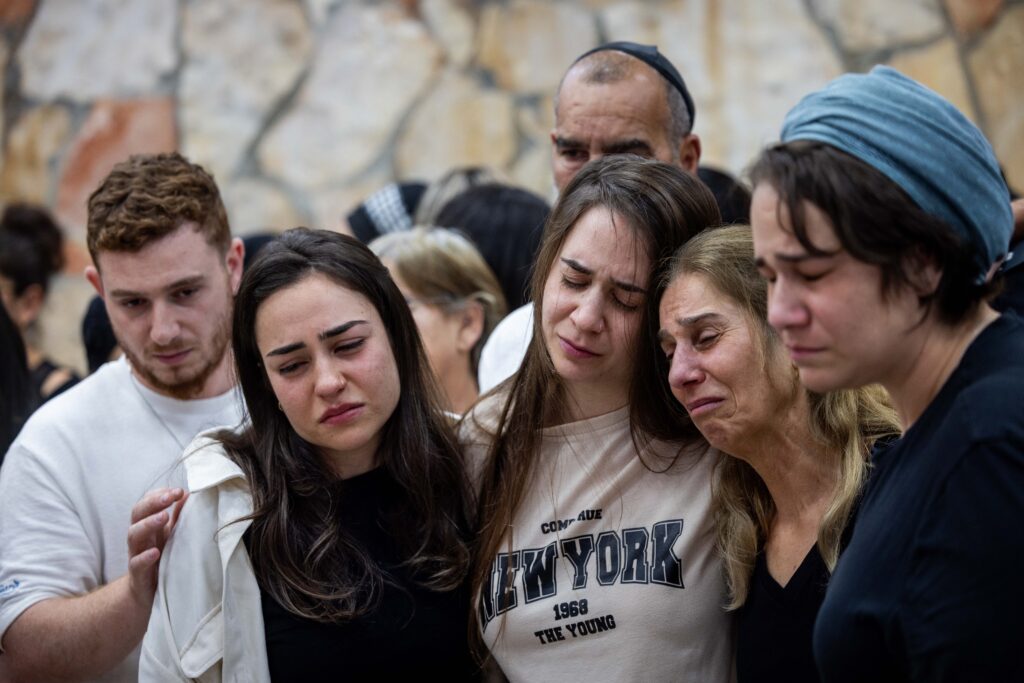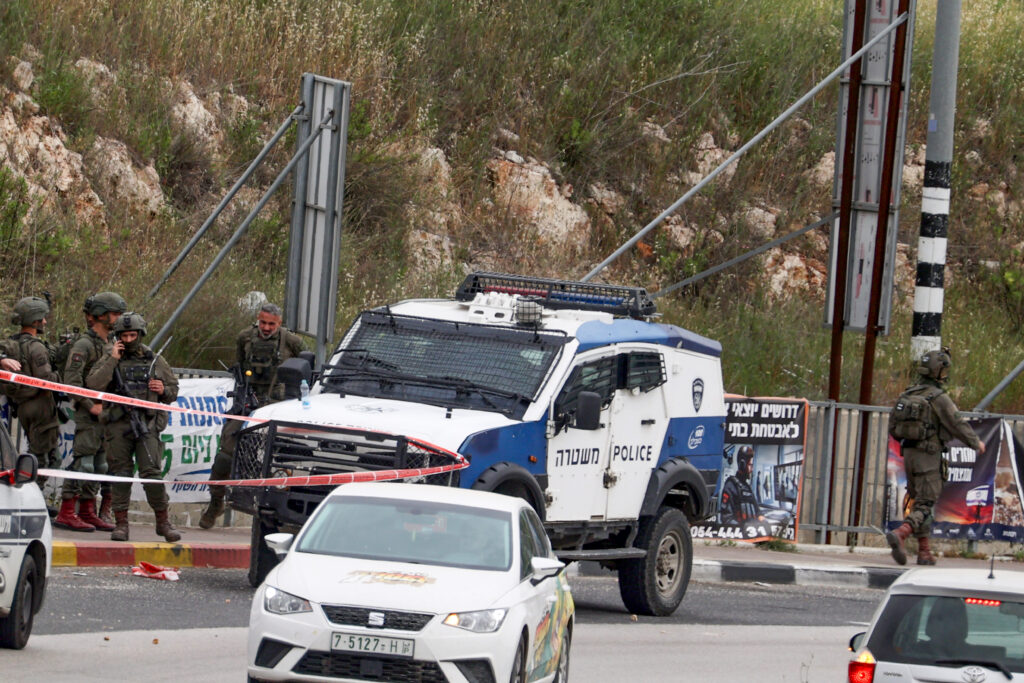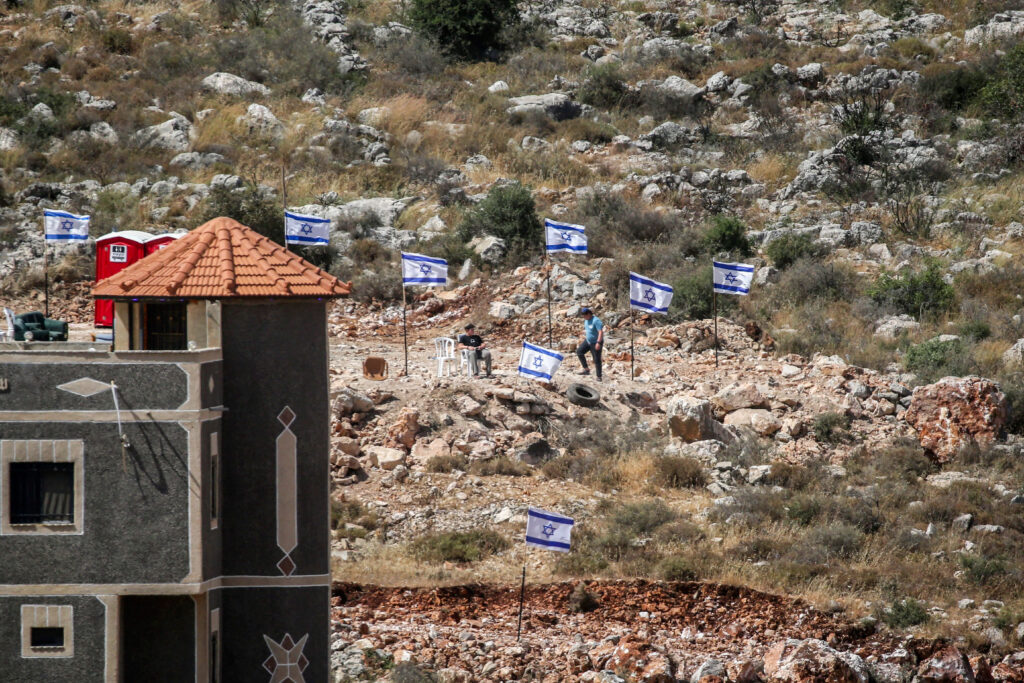Israel has just pulled off the impossible. In twelve stunning days—after nearly two years of war against Iranian terror proxies—Israel rose in strength and struck directly at the regime in Tehran, destroying nuclear facilities, missile factories, and command centers deep inside enemy territory. With precision, daring, and divine protection, Israel crushed the head of the terror octopus. And just days ago, a ceasefire was announced.
This was a war not just of survival—but of clarity. And now, with that clarity in hand, we must confront a more uncomfortable truth: if we do not finish the work here at home—in Judea and Samaria—we risk squandering the very victory we just achieved.
I live with my wife and children in Efrat, a Jewish town in the hills of Judea. We see firsthand the reality that many in the West only read about. And I can tell you plainly: if Israel does not act decisively now to reassert control over our heartland, we will be right back where we started.
Last month, a young mother named Tzeela Gez was on her way to give birth when a Palestinian terrorist opened fire on her car near the town of Bruchin. Her husband, Hananel, was lightly wounded. Tzeela, mortally injured, was rushed to the hospital. Doctors managed to deliver her baby by emergency C-section. He was named Ravid Haim, in accordance with his mother’s wishes. After fighting for his life for fifteen days, he too died.

Their murder shook the nation. But already, the headlines have faded. On the very road where Tzeela was killed, Molotov cocktails were thrown at Jewish drivers just days later. No change in policy. No urgent action. Just the quiet return of the same deadly routine.
Israel has long operated under the illusion that terror can be “managed.” That we can absorb low-level violence—occasional shootings, rock-throwing, stabbing attacks—without altering the larger status quo. But this strategy, which shaped Israeli policy for over a generation, is what led to the horrors of October 7, when Hamas terrorists infiltrated from Gaza and murdered 1,200 Israelis in their homes and at a music festival.
Israel’s enemies took our complacency as weakness. They mistook our restraint for defeat. And they were emboldened. The blood of October 7 was the direct consequence of a strategy built on delay and de-escalation.
But now—after Israel has struck Iran with breathtaking force and moral clarity—the dynamic must change. This is the moment to shift from containment to control, from defense to offense, from passivity to sovereignty. It’s time to proactively rid the land of Israel—God’s land—of those who murder Jews, and those who support their murderers.
We’ve seen what happens when we wait too long. In 2002, during the Second Intifada, Israelis endured daily suicide bombings on buses and in cafes. It wasn’t until a horrific attack on the Park Hotel in Netanya—where a Palestinian terrorist murdered 30 people during a Passover Seder—that Israel launched a full military response. And in 2023, it wasn’t the thousands of rockets Hamas had fired over the years that triggered war. It was the coordinated, barbaric massacre of civilians on Simchat Torah.
If Israel waits for another atrocity before acting in Judea and Samaria, the blood will be on our hands.

Let’s speak honestly: the Palestinian Authority is not a partner for peace. It is a dictatorship dressed in Western clothing. Its leaders praise terrorists, pay their families, and incite hatred in schools and media. Elections haven’t been held since 2006, because Hamas would win. And the population is not held hostage by extremists—they have repeatedly chosen them.
The Israeli army operates daily in these areas, but it does so under a web of legal and diplomatic restrictions. Judea and Samaria are governed not by Israeli civil law, but by a patchwork of outdated military orders. Meanwhile, over 600,000 Israeli citizens live in these regions—and they are not afforded the full rights and protections they deserve.
This land is not some fringe outpost. Samaria—the northern half of the biblical heartland of Israel—literally overlooks Ben Gurion Airport, the country’s main international gateway. If terrorists are allowed to control the high ground here, every plane landing in Tel Aviv is under threat. And so is the future of the State of Israel.
Extending Israeli sovereignty over Judea and Samaria isn’t just a theological or ideological imperative. It’s a strategic necessity. It ensures the security of central Israel, grants equal rights to our own citizens, and finally ends the dangerous fiction that this land could one day become a “Palestinian state.” That illusion has already led to thirty years of death and delusion since the Oslo Accords. It must not be revived.
And perhaps most importantly, sovereignty sends a message to the world that we must not outsource our future to those who glorify murder and dream of our destruction. We must not create another Gaza on the doorstep of our capital.

The war with Iran proved what Israel can accomplish when it acts with courage and conviction. Over 1,000 sorties were flown across vast distances. Iranian missiles were intercepted mid-air. No Israeli pilots were lost. Drones hit critical infrastructure. Iran’s nuclear program was shattered. And all this was made possible by a sense of national purpose, American partnership, and above all—divine favor.
We must feel this deeply: God is with us. He has chosen us, sustained us, and protected us. He has shown the world that His people are not alone.
We must be proud—not arrogant, but proud—to be His people. And we must act accordingly: take the land, remove those who seek our destruction, and embrace those Arabs who truly desire peace, and who wish to join us in building this land together.
“When the Lord your God brings you into the land that He swore to your fathers… and gives it to you… you shall not be afraid… for the Lord your God is the one who goes with you” (Deuteronomy 31:6, 7).
This is our moment to move forward without fear, to claim what is ours, and to build the future God has placed within our reach.
The lion has roared. Now, it is time to finish the fight.





